NSF Research Traineeship (NRT)
Past practicum projects:
2018-19 Traineeship
Students participated in a one-semester course consisting of three one-month long modules, entitled "Methods In Data- Enabled Research Into Human Behavior And Its Cognitive And Neural Mechanisms." This year consisted of the following three course modules:
- Probabilistic (often Bayesian) Models of Human Perception and Cognition taught by Professor Robert Jacobs. In particular, we used probabilistic models to develop so-called "ideal observers" which perform a perceptual or cognitive task. The task can also be performed based on the task inputs, task constraints, and modeling assumptions built into the observer. Through three programming projects, students gained hands-on experience implementing probabilistic ideal observers, and comparing observers' performances with human performances.
- Machine Learning taught by Professor Daniel Gildea. This module focused on general techniques for modeling and learning from data across application areas. We began with techniques for modeling rare events in heavy-tailed distributions, including statistical tests for selecting among models and choosing model parameters. We then covered neural networks and the backpropagation algorithm for training networks from data using gradient descent. The final topic was extensions to gradient descent for numerical optimization, including Newton's method, momentum, and recent techniques such as Adagrad and Adam. The module included a lab component in which students implemented each of the algorithms discussed in Python, with hands-on mentoring by the instructor.
- Language Processing taught by Professor Lenhart Schubert. This module included an overview of linguistic phenomena & challenges in natural language processing (NLP); English phrase structure and dependency structure, and basic parsing techniques; NN-controlled transition-based parsing; and compositional interpretation. There were two programming assignments and several tests.
The following semester, the students participated in "Practicum In Data-Enabled Research Into Human Behavior And Its Cognitive & Neural Mechanisms". This year, the course was led by Florian Jaeger, faculty member of the BCS department.
In this course, trainees work in mixed teams of 3-4 computer science, data science, and brain and cognitive science students to pursue a research project at the interface between data science and the brain sciences.
- Ever tried to mimic another dialect or just the speech of another person? One project in this class employed unsupervised learning and generative adversarial networks (GANs) to create 'dialect' morphing transform the speech from one person into another person's dialect.
- Alzheimer's Disease Neuroimaging Initiative (ADNI) - Another project developed a web interface to a large database of Alzheimer research, allowing the general public to explore factors that predict the progression of the disease.
- Spike Sorting - A third project compared different machine learning algorithms for 'spike sorting': identifying neuronal firing in the recordings of electrodes attached to the brain.
Most students in this cohort also attended the NIPS conference in Montreal, Canada in December 2018 where they were exposed to a wide variety of topics, workshops and tutorials. Travel to the conference was supported by the NRT grant.
Members of this cohort were also required to take a series of 5 workshops focused on scientific communication led by Dr. Whitney Gegg-Harrison from the Writing, Speaking, and Argument Program at the University of Rochester. The emphasis of these workshops has been on both written and spoken communication skills. Worksop topics included:
- Spoken presentation skills: Students critiqued examples of slides, and practiced their speaking skills, including exercises that involved modifying their speech rate while describing their work at varying levels of detail to another student.
- Rhetorical genre analysis as a tool for understanding the structure of scientific articles: Students analyzed and critiqued examples of published research articles from computer science, neuroscience, and psycholinguistics, including articles that the students were currently reading as part of their own research, and focused on identifying the rhetorical “moves” being made in each section of the paper, and how those moves were realized differently in different types of papers.
- Incorporating storytelling strategies into scientific communication: Students were asked to describe their own research using traditional storytelling frameworks, and then discuss how those frameworks would translate into grant proposals and research articles for both broad and narrow audiences. There will be two more workshops in this series.
- Producing writing that “flows”: Students are shown how they can use the insights from research in psycholinguistics to on creating better writing for their readers.
- “Translating” research into everyday language for non-expert audiences
Bios of the 2018-19 Class Members
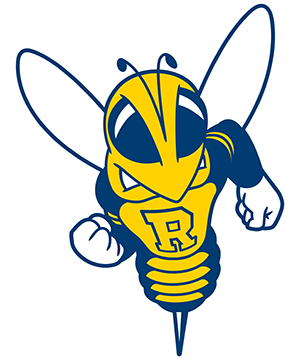 | Sam AlvernazSam is a first-year PhD candidate in the Department of Brain and Cognitive Science advised by Professor Ralf Haefner. |
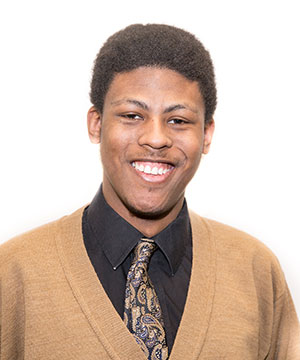 | Daryl BagleyDaryl is a first-year PhD candidate in the Department of Computer Science advised by Dr. Ehsan Hoque. He is interested in machine creativity. Daryl received his BS in mathematics and computer science from Harding University in May 2018. Website
Resume |
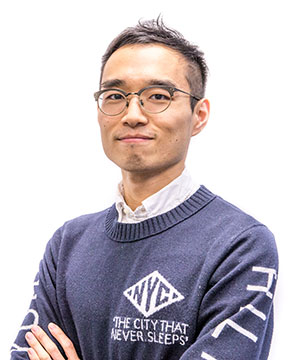 | Zhen ChenZhen is a first-year PhD student studying experimental psychology advised by Professor Ralf Haefner and Professor Krishnan Padmanabhan. His research interests are in computational neuroscience and dynamical systems. Link
Resume What did I learn from this course? I learned about Bayesian statistics, convolutional neural network and natural language processing. How might this course affect my career? This course provides a more comprehensive landscape about data science and technologies like machine learning, which I think would be beneficial to carriers both in academia and industry. |
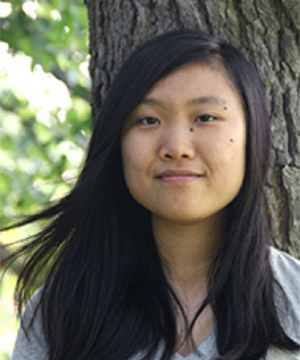 | Lisa JinLisa is a second-year computer science PhD candidate advised by Professor Daniel Gildea. Her research interests include natural language generation and machine translation. She received her bachelor’s degree in computer science from the University of Michigan in 2017. Website What did I learn from the course? I gained insight into statistical models of human cognition, neuroscience, and natural language. How might this course affect my career? Learning about the interplay between multiple levels of brain function and human reasoning showed me how AI is shaped (and limited) by biological ideas. I will look into these domains for context in future research problems. Updates since the class ended: - Internship at Lawrence Livermore National Laboratory
- Attended NAACL
|
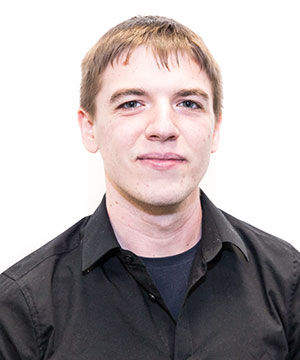 | Lane LawleyLane is a second-year computer science PhD candidate working with Professor Len Schubert. He works with schemas, which are abstract representations of general event patterns. Schemas are used to to recognize and reason about all sorts of recurring patterns in daily life, and the group is trying to enable computers to do the same sort of reasoning. Lane received a BS in computer science from Rochester Institute of Technology in 2015 and worked for Google for two years before starting his PhD. Email Project contributions: I have been working on algorithms to match event sequences, represented in a logical form, with known “protoschemas” that babies are likely born with. Once matched, these instantiations will form the basis for new schemas, and eventually lead to complex, multi-faceted, real-world schemas similar to those humans learn. What did I learn from the course? I learned basics of neuroscience and cognitive science which have greatly expanded the set of papers I feel comfortable reading and discussing with my group! How might this course affect my career? My new understanding of how research into real human brains is carried out will certainly help me design experiments to test the reasoning skills of artificial agents. What was surprising or the greatest challenge? There are so many things I’d heard definitions of, like Bayesian inference, the human visual cortex, etc., that I never integrated into a whole understanding of cognitive science. It was illuminating to see how all these concepts come together, rather than just reading about them piecemeal in the literature of other fields! |
 | Samuel LermanSam is a second-year PhD student at the University of Rochester, having graduated with a BS in computer science and a BA in mathematics. His passion is the study of learning — how learning happens, how phenomena are experienced, and how they’re integrated into an intelligent system. It’s a passion for understanding the nature of the mind. For that reason, his research is heavily inspired by the brain and cognitive sciences. Sam’s goal is to work within the fields of reinforcement learning, neuroscience, and psychology to illuminate the inner workings of these mysteries. He is advised by Professor Henry Kautz. Website
Email Project contributions: Broadly speaking, I contributed to medical predictive modeling using biologically inspired, novel neural network architectures (and hopefully it worked, but we are still building them!) What did I learn from the course? I learned about the methods and popular mathematical and medical tools used to study the brain, such as Bayesian modeling and fMRI. How might this course affect my career? This course will consolidate the cognitive aspect of my research focus in my career, allowing me to understand and investigate neuroscientific perspectives with more aptitude. What was surprising or the greatest challenge? The greatest challenge was the overwhelming amount of uncertainty challenging researchers in both fields. There was difficulty in estimating which discoveries and observations were useful to the actual process of learning and not just incidental byproducts of more essential features or evolutionary circumstances. In other words, it was difficult filtering through what information was meaningful and important! This process strengthened my skill of discernment in these research areas. |
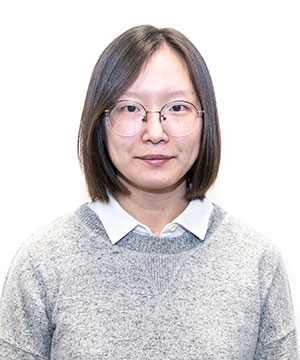 | Ying LinYing is currently a first-year PhD candidate in the Department of Brain and Cognitive Sciences advised by Dr. Duje Tadin and Dr. Vankee Lin. Her research interests include visual and auditory perception in children with Autism Spectrum Disorder, and cognitive decline in the aging population. She received a BA at Colgate University with double majors in behavioral neuroscience and Japanese. CV What did I learn from the course? This course provided an overview of Bayesian modeling, machine learning, and natural language processing. The utility of these methods in data science can span across diverse scientific domains including psychology, computer science, and cognitive science. How might this course affect my career? The programming skills and the methodologies that I have acquired from this course will be helpful towards my research, as well as professional prospects outside of academia. Partaking in this course with an interdisciplinary group of colleagues was incredibly beneficial in helping me approach scientific problems differently and creatively, which is an important aspect in research. What was surprising or the greatest challenge? The greatest challenge for me was the introduction to a large number of novel concepts and topics in a limited time. In addition, I did not have a strong programming background prior to this course, so I had to learn along the way. However, these processes have strengthened my abilities in becoming an independent learner. |
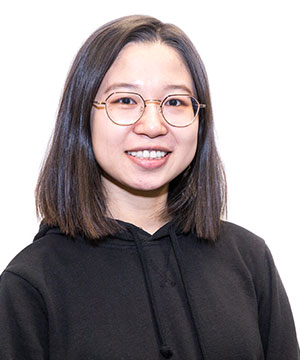 | Yingping LuYingping is a MS candidate in data science at the Goergen Institute for Data Science at the University of Rochester. She graduated from University of Illinois at Urbana-Champaign with a BS in applied mathematics. Her major research interest focuses on the new methods in unsupervised machine learning. Email
Resume What did I learn from the course? From this course, I learned a lot about probabilistic methods and their applications to understanding human perception and cognition. I also learned the basic principles and implementation of neural network and natural language parser. How might this course affect my career? I think this course is a great and consolidated interdisciplinary experience that enlarged my views on the data science-related thoughts in the aspect of cognitive science, and it is useful for my future research and industrial career. What was surprising or the greatest challenge? I was surprised by the design of the course. It is a really rare opportunity to work with a group of people from diverse fields and get an interdisciplinary understanding of computer science, cognitive science and data science within a single curriculum. |
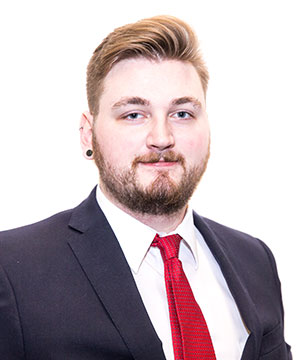 | Hayden ScottHayden is a first-year PhD candidate in the Department of Brain and Cognitive Sciences advised by Professor Adam Snyder. His background is in neuroscience and biochemistry. He uses tools from artificial intelligence to investigate how the primate visual system generates a model of the world. Email
CV What did I learn from the course? I learned about interesting areas of research that exist in the space between cognitive neuroscience, computer science, and data science. The course also provided groundwork for doing research in this interdisciplinary space, things like coding experience, Bayesian-frameworks, and relevant literature. How might this course affect my career? This course was a great opportunity for me to be exposed to many new avenues of research questions. With this experience, I am better able to decide what questions I want to pursue in my research career. |
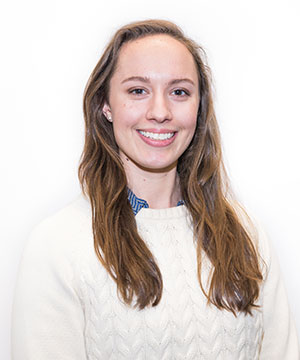 | Greta SmithGreta Smith is a first-year MS candidate in data science. Her research interests include data-driven advancement of healthcare and disease management. She received her bachelor’s degree in neuroscience from the University of Rochester in 2015. CV |
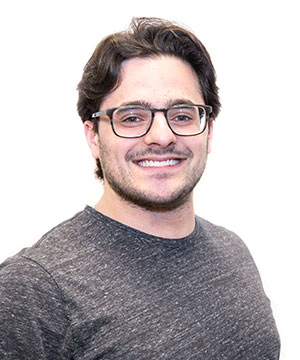 | Max WassermanMax is in his first year of the PhD program in the Department of computer science. Max is advised by Dr. Thomas Howard and holds interests in statistical machine learning. Max graduated magna cum laude from the University of Pennsylvania completing a degree in Mechanical Engineering from the School of Engineering and Applied Sciences. Email What did I learn from the course? The course allowed me to gain familiarity with critical data science subjects such as Bayesian Statistics, Neural Networks, and Natural Language Processing. |
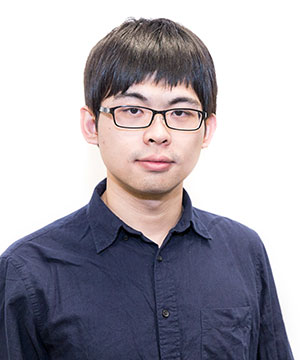 | Zhexin (Brian) XuZhexin is a first-year PhD candidate in the Department of Brain and Cognitive Sciences advised by Professor Greg DeAngelis. He received his bachelor's degree in mechanical engineering from Tongji University. His current research focuses on using computational and neurophysiological methods to study the process of depth and motion information in the visual cortex. Website
Current resume or CV What did I learn from the course? I learned about basic principles of artificial neural networks and the application of computational methods in natural language processing. How might this course affect my career? Being exposed to AI/ML methods is helpful for my research on analyzing neural activity. This course also inspired me to think more about the potential applications of neuroscience research in other fields. What was surprising or the greatest challenge? The greatest challenge was natural language processing. Learning both linguistics and LSTM from the start wasn't easy, but still interesting |
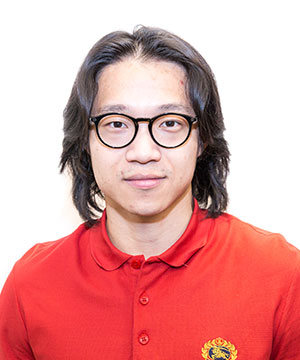 | Hongru (Max) YeHongru is a first-year MS candidate in data science. He received his bachelor’s degree in mathematics and psychology from the University of Illinois at Urbana-Champaign in 2017. Resume |













